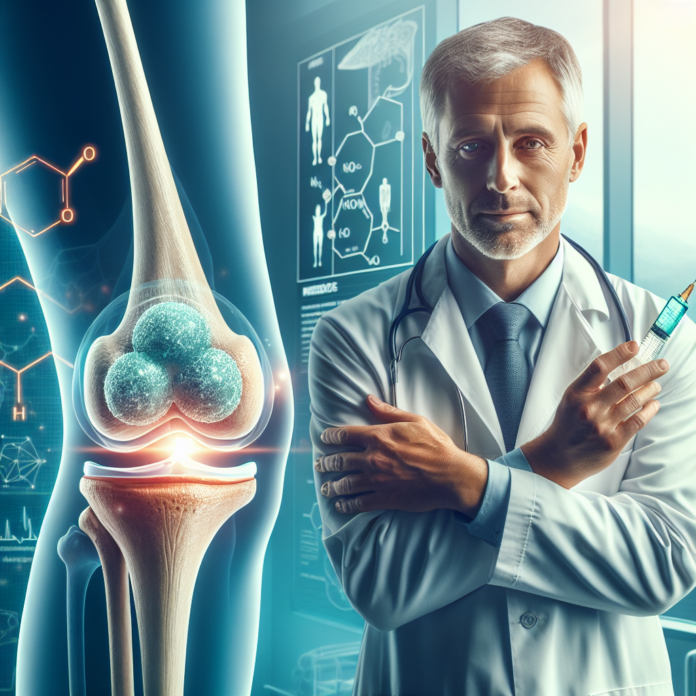When faced with an injury like a meniscus tear, the prospect of surgery can be daunting. As the c-shaped cartilage that cushions and stabilizes your knee, a torn meniscus often raises the question: can it heal without invasive procedures? In this blog post, we delve into the potential of peptides, specifically BPC 157, as a non-surgical option for healing. Dr. David Guyer, a triple board-certified orthopedic surgeon and expert in sports medicine and regenerative therapies, weighs in on this intriguing possibility. Drawing from his extensive knowledge and experience, Dr. Guyer explores whether these experimental peptides might offer hope for those looking to recover without going under the knife. Join us as we unpack the latest insights and examine the role of peptides in knee health.
The Role of the Meniscus and the Challenge of Healing
The knee joint plays a critical role in our daily functioning, and within it, the meniscus is particularly important. It serves as a shock absorber and stabilizer, cushioning the bones and allowing smooth motion. Unfortunately, the meniscus is vulnerable to tears and injuries, which are quite common, especially among athletes and active individuals. Traditional medical wisdom contends that meniscus tears do not heal on their own due to their limited blood supply, often necessitating surgical intervention.
Peptides and Their Potential: Spotlight on BPC 157
Recently, however, there has been growing interest in peptides—specifically BPC 157—as a potential alternative treatment. BPC 157, a peptide derived from the gastric juice, is believed to possess regenerative properties, sparking curiosity about its potential to heal soft tissue injuries like meniscus tears.
The allure of BPC 157 lies in its reported ability to promote healing and reduce inflammation. As peptides are short chains of amino acids that occur naturally in the body, they have the potential to interact with various bodily processes. In the case of BPC 157, proponents suggest that it could facilitate tissue repair and mitigate pain. However, it’s crucial to highlight that the FDA currently classifies BPC 157 as experimental, meaning its safety and efficacy are not yet fully established for medical use.
Challenges in Utilizing BPC 157 for Meniscus Tears
The central consideration is whether these peptides can deliver therapeutic benefits to the meniscus. Because the meniscus does not receive significant blood flow, its healing capacity is naturally constrained. This raises doubts about the ability of orally ingested or subcutaneously injected peptides to reach the intra-articular space of the knee, where they would need to exert their healing influence. Furthermore, even when BPC 157 is injected directly into the joint by healthcare professionals, there is scant scientific evidence to support its regenerative potential.
Expert Insights from Dr. David Guyer
Dr. David Guyer brings a measured perspective to this discussion. He acknowledges that while some patients and practitioners advocate for BPC 157 as a non-invasive treatment option, skepticism remains about its efficacy in truly regenerating meniscal tissue. Despite its experimental use for various orthopedic conditions, such as tendon injuries and ligament healing, the lack of rigorous, peer-reviewed studies casts doubt on its application for meniscus tears.
Exploring Alternative Regenerative Treatments
Instead, other regenerative therapies may hold more promise. Emerging treatments like platelet-rich plasma (PRP) injections, stem cells, and exosome therapy are gaining traction as potential alternatives to surgery. Each of these options seeks to harness the body’s natural healing mechanisms to repair damaged tissues. While evidence is still developing, these approaches are backed by a growing body of research, suggesting they could provide viable non-surgical treatments for meniscal injuries.
For those considering BPC 157 or other regenerative therapies, it is essential to consult with a qualified medical professional. Only through a thorough assessment of individual cases can a treatment plan be developed that aligns with specific needs and goals. Moreover, understanding the experimental nature and regulatory status of these treatments is key to making informed decisions.
Conclusion
In conclusion, while the exploration of BPC 157 as a healing agent for meniscus tears is intriguing, current evidence does not strongly support its effectiveness in this capacity. Patients seeking alternatives to surgery should consider consulting with experts who can guide them through the landscape of regenerative treatments. As research advances, we may yet uncover more robust, evidence-backed solutions that offer hope for natural healing and recovery. Until then, maintaining open communication with healthcare providers and staying informed about the latest developments is crucial for making informed choices about knee health and injury management.
